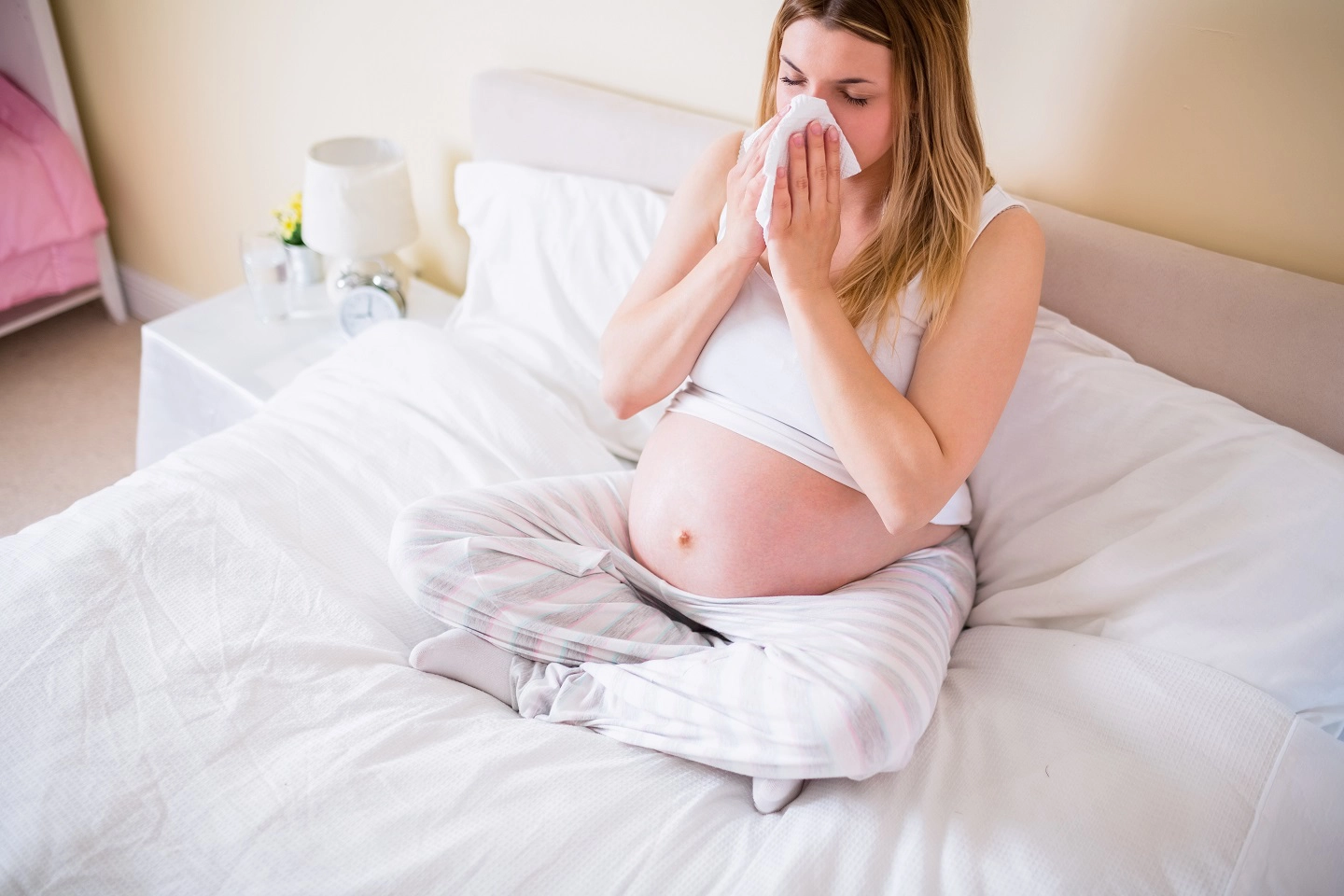FamiBlog
Parvovirus infection in pregnancy
Recently, experts have noticed an increase in parvovirus infections in expectant mothers. This disease is particularly dangerous during pregnancy, as it can lead to complications for the foetus. Learn how the infection occurs and what the risks are of contracting parvovirus B19 during pregnancy.

18 September 2023
Parvovirus in pregnancy - what is the disease?
Parvovirus is a viral disease of childhood caused by parvovirus B19. It is a pathogen that causes an infection in preschool children, usually called erythema contagiosum or fifth disease. It is usually mild in children. About one fifth are asymptomatic. However, the virus can pass through the placenta and have dangerous consequences for the foetus.
Parvovirus in pregnancy - Symptoms
Many people have experienced infectious skin rubella in their lives without knowing it. As a result, these people have acquired immunity. Sometimes, however, the disease only appears in adulthood, for example during pregnancy. Patients notice a rash, runny nose, cough or weakness and recognise this as a cold. The disease is usually not dangerous for the expectant mother. However, it does require observation and especially a Doppler ultrasound examination because of possible complications for the developing foetus.
Parvovirus in pregnancy - how can you get infected?
Infection with the parvovirus usually occurs through droplet infection, i.e. through contact with a sick child. The contagiousness is greatest before the rash appears. During the rash phase, the child is no longer contagious. The greatest risk is for pregnant women who already have an older child at home. Therefore, it is advisable to avoid contact with preschool-age children during pregnancy and to avoid larger groups of children. This is because they can also infect the pregnant woman with other infectious childhood diseases, e.g. smallpox or rubella, which also cause dangerous complications for the foetus.
Parvovirus in pregnancy - possible complications
Infection with parvovirus during pregnancy can cause anaemia in the foetus, which can lead to generalised oedema and even death in the womb. The disease is particularly dangerous if the infection occurs between 15 and 20 weeks of pregnancy. Ultrasound diagnosis is very important if there is contact with a sick child or an infection is suspected in the expectant mother.
Parvovirus in pregnancy - Treatment
After contact with infectious skin rubella during pregnancy, an antibody test is useful. This shows whether the pregnant woman has already had an infection and whether the antibodies present are new or "old". If the expectant mother has a symptomatic infection, regular ultrasound examinations with assessment of the vascular flows, especially the middle cerebral artery, are necessary. Her increased maximum systolic velocity (MCA PSV) is associated with anaemia of the foetus and requires medical intervention. In such a situation, the pregnant woman should be referred to a referral centre for this type of patient. There, an umbilical cord puncture will be performed to determine the fetal haemoglobin and, if necessary, an intrauterine transfusion will be planned if fetal anaemia is confirmed.
The good news is that early detection of parvovirus infection and implementation of appropriate treatment has a very good outcome and allows the child to continue to develop normally in the womb.
Sie interessieren sich auch für:
Intimate infections during pregnancy
Many expectant mothers struggle with the annoying symptoms of intimate infections during...
Sore throat during pregnancy
A sore throat is a relatively common condition that also affects pregnant women. However, not all...
Eating raw meat during pregnancy
During pregnancy, the expectant mother has many desires. But not all of them can be freely...
Stem cells and cord blood
Bone marrow was the primary source of stem cells (bone marrow transplantation involves...































